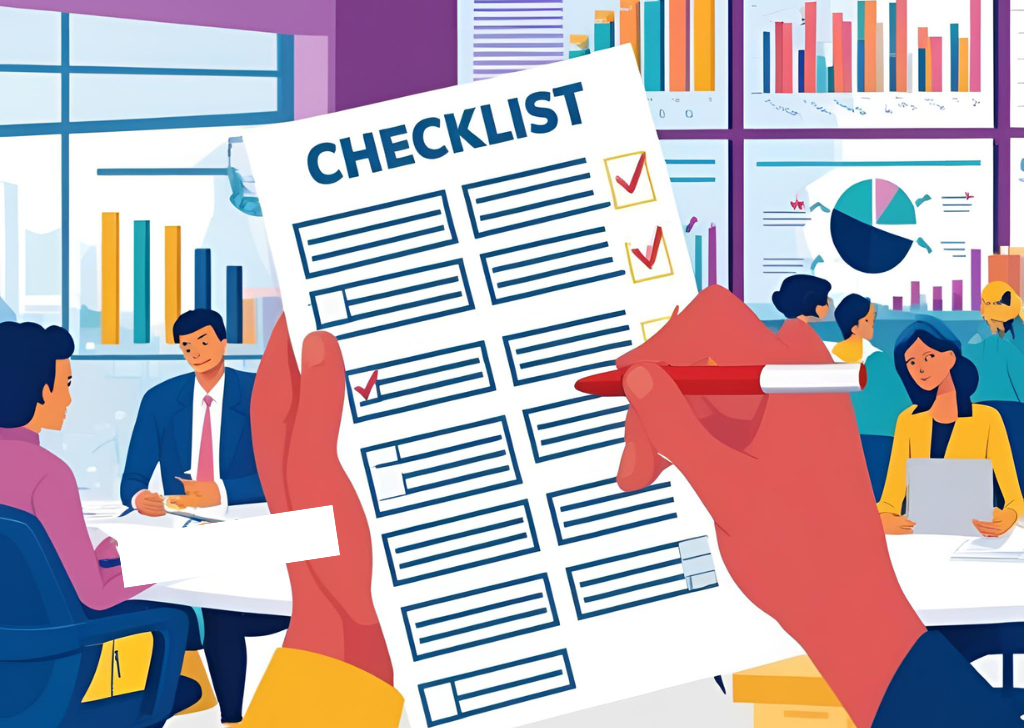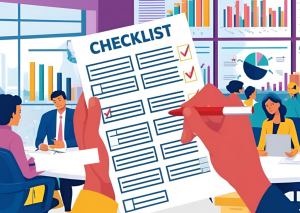Auditing one’s finances is simple. You must carefully examine your earnings, outlays, investments, and savings. You may use this audit to see whether you’re saving enough money, making prudent purchases, or needing to modify your investing plans. It is a straightforward method to enhance your financial well-being and make wiser financial decisions. You may make better decisions and accomplish your objectives by doing a personal financial audit, which can provide you with clarity and insight into your financial situation.

Collect Your Financial Documents
A personal financial audit includes acquiring a range of financial documents, including bank statements, credit card statements, loan records, income records, insurance policies, and investment statements. These documents help assess sources of income, unpaid balances, and spending trends. Bank statements for all accounts, including investment, savings, and checking accounts, should be collected. Credit card statements are required to be collected to assess spending trends and outstanding balances. Documentation of income should include salary stubs, tax records, and other sources of revenue. It is wise to compile insurance policies from many sources.
Finding out about any spending patterns is the next step. Examine the bills and receipts, and keep an eye out for any unforeseen or excessively high costs. Try to draw attention to recurring trends or routines in the different expenditure categories. You could discover that you spend a lot of money on food and takeaways. Perhaps you incur excessive debt, or perhaps you overspend on subscription services. Reviewing how and when you spend might be an effective idea. You will then be able to determine which of your habits is hurting your financial situation. Once more, maintaining personal records will be crucial because it may not be as trustworthy to analyze your monthly expenses from recollection.
Assess Your Net Worth
Compile all of your financial records and figure out how much money is in each bank account to evaluate your financial assets and liabilities. Assess your investment accounts’ worth, including your retirement accounts, stocks, bonds, and mutual funds. Calculate how much your entire real estate holdings, including your primary home and rental properties, are worth. Make a list of any valuable personal belongings. Determine how much debt you have overall, including credit card debt, student loans, auto loans, and mortgages. Take into account any additional financial commitments, such as unpaid medical bills or personal loans from relatives or friends.
Come up with a better strategy to refine your finances. Start planning for meals and eliminating extra spending. Cut out unwanted or overly expensive services, make a plan to reduce debt, and put the funds into your savings account. By strategizing ways to make your habits better and reprioritizing expenses, you will be able to keep your finances on track to complete your objectives and acquire financial freedom.
For efficient money management, make a budget based on your income and spending. Establish financial objectives for the short, medium, and long term based on your priorities and values. Short-term objectives include vacation savings, credit card debt repayment, and emergency fund building. Saving for a down payment on a house, launching a company, or paying for kids’ schooling are examples of medium-term objectives. Retirement savings, mortgage repayment, and financial freedom are examples of long-term objectives. Spend money according to your priorities and ideals. To stay on course, keep a close eye on your budget and make any adjustments.
Align Investments With Your Goals
Objectives need varying amounts of time and resources. Minimize or eliminate the equity component for short-term objectives. Continue investing using a balanced portfolio strategy for medium-term objectives, or rebalance at a later time. Increase your stock investments for long-term and retirement objectives, but periodically rebalance to safeguard gains during prosperous years. Since income should ideally rise yearly, regular savings amounts should also rise annually to keep pace with income. Avoid waiting a few years to go up, but if not annually, do it every two years. To guarantee security during prosperous years, regular rebalancing is advised.
Increasing the accuracy of financial statements is a major advantage of adopting a quarterly financial reporting checklist. Ensuring the authenticity of financial data requires regular data verification, which is ensured by a checklist. People may lower the possibility of errors and inconsistencies by using a defined procedure to confirm that all data entries are correct and consistent.

Review and Correct Errors
When a reporting checklist is used diligently, financial statements become more accurate. Following a thorough checklist enables people to methodically examine and cross-check all financial data, guaranteeing that all figures are correct and all reports are comprehensive. This careful process improves the financial statements’ reliability and fortifies the person’s financial situation.
You may determine whether your credit score needs to be raised or whether any errors need to be contested by looking over your credit report as part of a personal finance audit. If you want to buy a home, you should make sure your credit score is high so that interest rates and loan terms are favorable. Every year, the three main credit agencies provide you with a free credit report.
Final Thoughts
A crucial first step in taking charge of your money and reaching your long-term financial objectives is performing a personal financial audit. You may strengthen your financial situation and lay the groundwork for a safe and prosperous future by evaluating your assets and obligations, examining your income and spending, making a budget, reevaluating your financial plan, and making adjustments in response to your findings. Keep in mind that attaining financial success is the journey and that maintaining focus and reaching your objectives requires frequent evaluations and modifications. You can take control of your finances and build the life you want if you are committed, disciplined, and make wise decisions.





